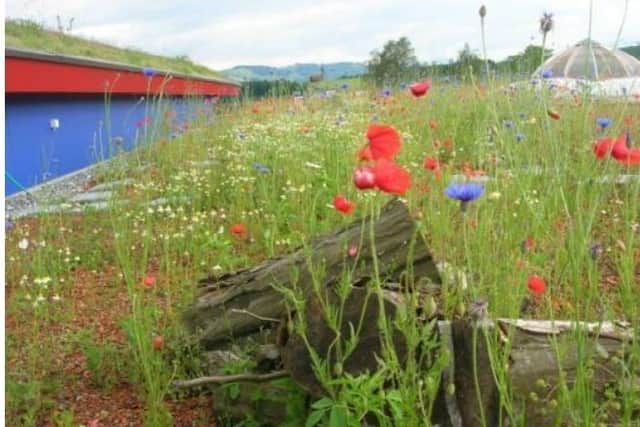Tougher wildlife and green space rules for developers adopted by Barnsley Council
and live on Freeview channel 276
The council’s biodiversity and geodiversity supplementary planning document sets out its expectations of developers when considering a planning application, and aims to protect wildlife and green spaces.
An update has been agreed by BMBC’s cabinet this morning, which mandates that all construction projects provide at least 10 per cent biodiversity net gain.
Advertisement
Hide AdAdvertisement
Hide AdBiodiversity net gain means all new building projects must achieve a 10 per cent net gain in biodiversity or habitat. For example, if a woodland is built over by a housing development, another needs to be recreated on-site or elsewhere in the borough.


The requirement became law under the Town and Country Planning Act on 12 February for larger sites, and on 2 April 2024 for smaller sites.
Newly created or enhanced habitats must now be secured for at least 30 years via planning obligations or conservation covenants.
Barnsley’s Local Plan, adopted in 2019, has an annual target of 1,134 homes, which equates to 21,546 over the lifetime of the plan until 2033.
Advertisement
Hide AdAdvertisement
Hide AdThe updated law means land affected by those developments must be compensated for in terms of biodiversity.
The only exempt developments include householder applications, small-scale and custom housebuilding, and developments impacting habitats below 25 metres squared.
Living roofs will be considered on all new roofs of more than 25m2, and all new homes will require integrated bat and bird boxes.
The policy adds that ‘extinction events’ are taking place on local,regional, national and international scales, and that ‘habitat loss and species decline is a real threat, with habitats and species once considered common in the borough now facing increasing pressures from development, climate change and many other factors’.
Advertisement
Hide AdAdvertisement
Hide AdCouncillor James Higginbottom, cabinet spokesperson for environment and highways, told the meeting that the policy is a ‘positive step’ for Barnsley, adding that it will ensure that future developments are ‘held to the highest possible standard’.
Councillor Sir Steve Houghton, leader of the council, added that the policy would make sure that the council’s aspirations are met.
The policy will be considered by full council on March 28.